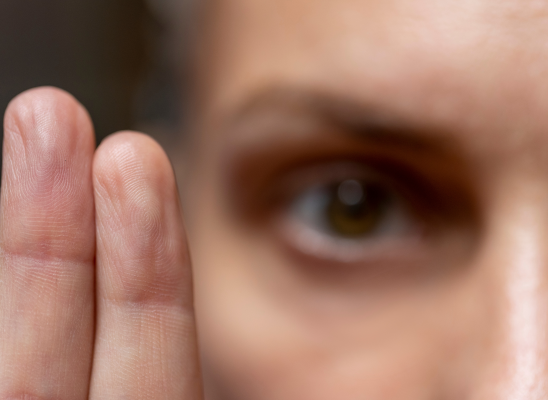
Online test
Find out the severity of your symptoms with this free online test
Obsessive-Compulsive Disorder (OCD) is a condition characterized by intrusive, distressing thoughts (obsessions) and repetitive behaviors (compulsions) that individuals perform to reduce anxiety. The road to treating OCD can feel overwhelming, with many people finding themselves caught between the desire for change and the difficulty of confronting their fears. Motivation is essential to the process of treatment—both in taking the first step and maintaining momentum during the ups and downs. This article explores the role of motivation in OCD treatment, why it can fluctuate, and how finding your personal "why" can be a crucial tool for maintaining progress.
Motivation: The Key to Starting OCD Treatment
The first step in seeking treatment for OCD is often the hardest. Facing obsessive thoughts directly or resisting compulsions can feel daunting, especially if the rituals have been a part of daily life for years. However, the desire to regain control, improve relationships, or reduce the burden of OCD are what often creates the motivation to take that initial step toward therapy.
For example, you may have noticed how OCD impacts your relationships or daily functioning—perhaps you spend hours checking locks or washing your hands, leaving you exhausted or socially isolated. When the effects of OCD become unbearable, the motivation to change grows stronger.
Waxing and Waning Motivation
Although motivation to start treatment is often strong, it typically fluctuates over time. Therapy for OCD usually involves confronting obsessive thoughts while resisting the urge to perform compulsive behaviors. For instance, if you have contamination fears, you might touch a “dirty” object and refrain from washing your hands. It’s a challenging process.
That is why a concept known as "waxing and waning" motivation is a natural part of the recovery process, Motivation can dip as treatment progresses, particularly when it becomes harder or when setbacks occur.
After several months of therapy, the initial enthusiasm may wear off, leaving you feeling frustrated or discouraged. You might question if the effort is worth it or wonder if you're making any progress at all. These feelings of low motivation are normal and don’t signal failure. The key is to recognize them as part of the journey and not let them derail your progress.
The challenge can be particularly acute when you face deeply rooted fears or long-standing compulsions. These moments can feel emotionally exhausting, but recovery isn’t linear. It’s essential to keep showing up for therapy, even when motivation is low, because every small step—no matter how challenging—brings you closer to managing OCD.
Finding Your "Why": The Importance of Purpose in Treatment
When motivation dips, reconnecting with your “why”—the personal reason you sought treatment—can reignite your drive. Your "why" is the deeper, emotional reason behind your decision to face OCD. It could be the desire to reclaim your life, improve your relationships, or break free from the constant cycle of fear and compulsion.
Here are some examples of what someone's "why" might look like:
Contamination OCD:
If OCD revolves around fears of germs or dirt, your “why” might be to stop spending hours on cleaning rituals, which affect your job, friendships, or personal freedom. The hope to live without being controlled by these fears could drive you to seek therapy.
Harm OCD:
If you fear accidentally harming someone, your “why” might be to stop living in constant anxiety about causing harm to loved ones. This could allow you to reconnect with family and friends without the emotional toll of constant worry.
Decision OCD:
For someone struggling with decision-related OCD, the "why" might be to break free from the endless cycle of second-guessing and overthinking. This could enable you to make decisions with confidence and stop fearing that every choice will lead to disaster.
Your “why” is unique to your struggles and can act as a motivating force during difficult moments. To discover your own “why,” consider these questions:
- What would life be like without the constant grip of OCD?
- How would it feel to go through a day without needing to perform rituals?
- What parts of my life are affected by OCD, and how would I benefit from change?
Reconnecting with your "why" can provide renewed purpose, especially when motivation fluctuates. Treatment isn’t just about reducing anxiety; it’s about regaining the freedom to live confidently.
Keeping the Momentum Going: Strategies for Sustaining Motivation
While motivation may ebb and flow, there are several strategies to keep moving forward in your OCD treatment, even when enthusiasm wanes. Here are some practical techniques:
Break Goals into Smaller, Achievable Steps
Large goals can feel overwhelming, so breaking them down into smaller, manageable tasks can help maintain momentum. For example, if your obsession involves making the “right” decision, begin by limiting the time spent second-guessing after a choice. Gradually reduce this time over weeks. As you gain confidence in making decisions, the compulsive behaviors will lessen.
Create a Routine and Stick to It
Routine is crucial for progress, especially when motivation dips. Set regular times for therapy sessions and practice ERP techniques. Even on tough days, sticking to your routine will help you stay accountable and ensure steady progress. Consistency builds momentum, making it easier to persevere when motivation feels low.
Track Your Progress
OCD treatment can sometimes feel slow, making it difficult to notice incremental improvements. Keeping a progress journal can help. Write down small victories, such as resisting a compulsion or successfully facing an anxiety-provoking situation. Tracking these successes will serve as reminders of how far you’ve come and motivate you to continue.
Find Support Systems
Having a support system is invaluable for maintaining motivation. Whether it’s a therapist, family member, or support group, connecting with others who understand can provide encouragement when motivation falters. A support system can remind you of your progress and offer practical strategies to keep moving forward.
Be Kind to Yourself
During difficult moments, it’s easy to become frustrated or critical of yourself. However, self-compassion is essential for sustaining motivation. Remember, OCD is challenging, and simply attending therapy is a significant achievement. Celebrate your efforts, not just the outcomes. Being kind to yourself helps prevent discouragement and keeps you focused on your long-term goals.
Reward Yourself for Small Wins
Acknowledging small victories can reinforce progress and help maintain motivation. For instance, if you successfully resisted checking your phone or performed an exposure task despite feeling anxious, celebrate that accomplishment. Positive reinforcement, like enjoying a favorite snack or taking a break, helps you stay motivated and reminds you that every step forward is important.
Conclusion
OCD treatment isn’t easy, and there will be times when motivation fluctuates. But motivation is key to starting and continuing progress in therapy. It’s important to recognize that motivation will come and go, and that’s okay. With strategies like breaking down goals, tracking progress, and finding support, you can keep moving forward, even when motivation wanes. The journey to managing OCD is a marathon, not a sprint. By reconnecting with your “why,” building a routine, and practicing self-compassion, you can sustain motivation and continue to work toward regaining control of your life. Every step forward, no matter how small, is a step closer to a life free from the grip of OCD. Keep going—even when it feels hard. You’re not alone, and the progress you make will add up over time.
If you’re ready to take the next step in your recovery, consider exploring the treatment options available at Stop OCD. We offer professional support, personalized plans, and effective, evidence-based strategies like Exposure and Response Prevention (ERP) to help you manage your OCD and improve your quality of life. Don’t wait to get the help you deserve—reach out today and take control of your journey toward healing.
References
- Simpson, H. B., Zuckoff, A. M., Maher, M. J., Page, J. R., Franklin, M. E., & Foa, E. B. (2010). Using motivational interviewing to enhance treatment outcome in people with obsessive–compulsive disorder. Cognitive and Behavioral Practice, 17(4), 371–377. https://pmc.ncbi.nlm.nih.gov/articles/PMC3972759/
- Patel, S. R., Simpson, H. B., & Koran, L. M. (2019). Improving treatment outcome in obsessive–compulsive disorder: Using motivational interviewing to enhance exposure and response prevention. Journal of Obsessive-Compulsive and Related Disorders, 21, 55–62. https://www.sciencedirect.com/science/article/pii/S2211364919300363
- Krompinger, J. W., & Abramowitz, J. S. (2014). The role of motivational readiness in cognitive-behavioral therapy for obsessive–compulsive disorder. Journal of Obsessive-Compulsive and Related Disorders, 3(2), 106–111. https://www.sciencedirect.com/science/article/abs/pii/S221136491400102X
- Keeley, M. L., Storch, E. A., Merlo, L. J., & Geffken, G. R. (2008). Clinical predictors of response to cognitive–behavioral therapy for obsessive–compulsive disorder. Clinical Psychology Review, 28(1), 118–130. https://pubmed.ncbi.nlm.nih.gov/17612847/
- Westra, H. A., & Dozois, D. J. A. (2006). A case study perspective on the importance of motivation in the treatment of obsessive–compulsive disorder. Motivational Interviewing: Training, Research, Implementation, Practice (MITRIP). https://motivationalinterviewing.org/content/case-study-perspective-importance-motivation-treatment-obsessive-compulsive-disorder
Online test
Find out the severity of your symptoms with this free online test
Start your journey with StopOCD
Take control of your life and find freedom from OCD through professional therapy and evidence-based cognitive behavioral techniques.
Start Now



